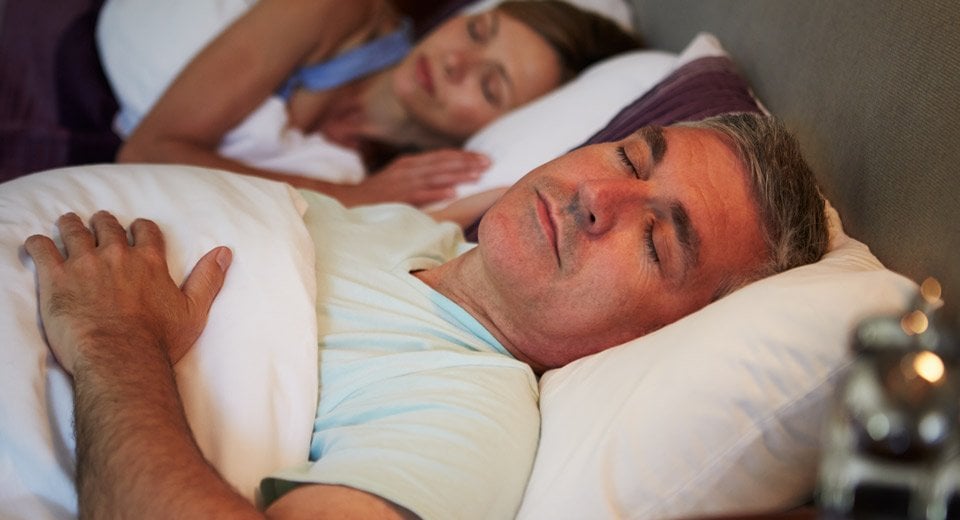Lack of sleep may raise your risk of this

Could your sleep quantity and quality be as important as diet, or possibly even more so, in determining whether you develop diabetes?
Type 2 diabetes can cause cardiovascular, kidney and eye problems. Being overweight and not often physically active are two major risk factors.
Not regularly getting enough sleep is another important risk factor – it may even be more significant than diet. That’s what researchers concluded after analyzing data of nearly 250,000 patients from the UK Biobank. They found adults who routinely got fewer than six hours of sleep a night had an increased chance of developing diabetes – whether or not they ate a healthy diet, according to an article published March 5, 2024 in JAMA Network Open.
Of the 247,867 people analyzed, who had a mean age of 55.9 years, 3.2 percent developed diabetes over periods ranging around 12.5 years. Researchers wrote that those who routinely slept five hours a night had a 16 percent higher chance of developing diabetes, and those who slept three to four hours a night had a 41 percent higher chance of developing diabetes.
The Importance of Sleep
The analysis bolsters earlier research on the importance of sleep to human metabolism and general health, said Mir F. Shuttari, MD of Falmouth Hospital, who is board-certified in sleep medicine and internal, pulmonary and critical care medicine. He was not associated with the study. He said research on the subject dates back as far as results presented at the 2007 annual meeting of the American Academy of Sleep Medicine. The large list of papers presented then strongly supported the idea that insufficient sleep can contribute to developing diabetes.
“What we think is happening is there are some chemicals secreted in the body” when a person doesn’t get enough sleep, he said, “that causes insulin resistance to go up.”
Type 2 diabetes occurs when your body no longer responds normally to insulin, a hormone your pancreas makes that lets your cells utilize blood sugar, according to the Centers for Disease Control and Prevention. This is called insulin resistance.
Eating a healthy diet, exercising and shedding pounds can help prevent having elevated blood sugar levels, or pre-diabetes, from getting worse and turning into diabetes. Diet, weight loss and exercise can also help control type 2 diabetes.
Prevention of type 2 diabetes has focused on diet, weight loss and exercise, but equal attention should be given to getting adequate sleep, Dr. Shuttari said.
“Sleep is an integral part of good health,” he said.
How to Sleep Better
Lack of regular sufficient sleep not only can make people feel chronically tired, but it can also increase the risk of cardiovascular events such as atrial fibrillation and strokes, Dr. Shuttari said.
The British research team noted in their paper that sleep apnea, a condition in which breathing briefly halts several times during sleep, is quite common, underdiagnosed and linked to insulin resistance and type 2 diabetes.
“Treating sleep apnea improves diabetes,” Dr. Shuttari said. “The need for insulin and oral medications goes down.”
Once a person develops diabetes, the disease can make getting good sleep more difficult by causing restless leg syndrome and discomfort from neuropathy, he said.
To help ensure you’re sleeping well, Dr. Shuttari offered these tips:
- Have a perfect bedroom environment for sleep – dark, quiet and maybe slightly cool.
- Have a fixed bedtime.
- Exercise is good, but not within five hours of falling asleep.
- Avoid alcohol and caffeine close to bedtime.
The British researchers said it may not be possible for some people to regularly get enough sleep. They wrote that an analysis of UK Biobank data from a clinical trial suggests high-intensity exercise may help prevent people with sleep shortfalls from developing type 2 diabetes. They also noted while diets high in plant foods are associated with a lower diabetes risk and diets high in processed foods are associated with a higher diabetes risk, it’s unknown if a healthy diet can offset the risk caused by inadequate sleep. They said their study did not provide “compelling evidence” that a diet low in red meat and processed meat and high in fish, vegetables and fruit could “sufficiently mitigate” the diabetes risk caused by routinely insufficient sleep.
Although the size of the British study was impressive, it was based on patients self-reporting their sleep and eating habits, and largely based upon older white people. Dr. Shuttari said he’d like to see research enrich the quality of data by including Hispanics and African-Americans.
“Lack of sleep in non-Caucasian people seems to be a little more detrimental,” he said.
